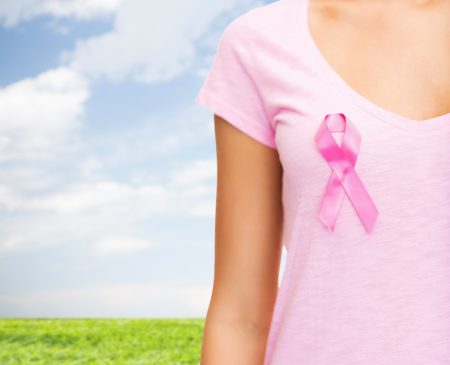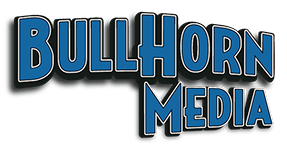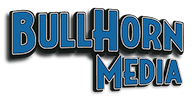Breast Cancer Awareness month has arrived with October. Because we all have known friends and family who have been afflicted with this disease, we are departing from our usual media and technology stories. We are using this week’s blog to update you about the newest statistics behind Breast Cancer Awareness. Indeed, if it alerts one person to the benefits of early detection, it will be a blog well-spent.
Here at Bullhorn Media, we are facing the golden leaves and pink ribbons that mark every autumn. As stated, in recognition of Breast Cancer Awareness, we put aside our usual topics. And instead, we focus the loss as well as the survival of millions of women. Recent facts revealed by the American Cancer Society offer hope as well as challenges to victims of Breast Cancer.
Therefore, our topic this week, is Breast Cancer Awareness. It’s a time to celebrate survivors as well as remember those who lost their fight against this deadly disease.
Early Discovery is Still Our Biggest Weapon

Early Detection is the Key to Survival. Schedule Your Mammogram Today.
Breast examinations are still the best way to protect ourselves from this disease. Make an appointment for your mammogram. This examination is an absolute must every year.
Whether you are in one of the “at-risk categories” or not, early detection can save your life.
Breast Cancer: Am I at Risk?
There are many factors that are related to being at risk. Simply being a woman and getting older is one of the major risk categories. Most breast cancers are found in women who are 50 years old or older.
Remember, if you are in one of the risk groups (shown below) does not mean you will get breast cancer. However, even if you are not in a risk group, there is no guarantee against it.
Some women will get breast cancer even without any other known risk factors. Most women have some risk factors, but most women do not get breast cancer.
Disease Risk Factors
There are numerous “at-risk” categories. For a complete list, check out this trustworthy site.
Some of these you can do something about and some you cannot.
Risk Factors that you cannot change:
- Getting older. The risk for the disease increases with age; most breast cancers are diagnosed after age 50.
- Personal history of breast cancer or certain non-cancerous breast diseases. Women who have had breast cancer are more likely to get it a second time.
- Family history of breast cancer. A woman’s risk is higher if she has family members who have had it.
Risk Factors You May Be Able to Change
- Not being physically active. Women who are not physically active have a higher risk of getting breast cancer.
- Being overweight or obese after menopause. Older women who are overweight or obese have a higher risk of getting breast cancer than those at a normal weight.
- Taking hormones. Some forms of hormone replacement therapy
Breast Cancer Facts
There are new facts have been released by the National Breast Cancer Association. The facts prove that statistics can provoke emotion. Here are some examples for you, your mom, your sister, your daughter or your friend:
- Did you know that on an average, a woman in the US is diagnosed with this disease every two minutes?
- Are you aware that one of our most distinguished facts is a death toll? It’s a fact. An estimated 41,760 women will die from this dreaded fate, in the U.S.alone, in 2019.
Another statement reveals that it will attack 1 in 8 women in the United States at some time in their lives. It might not be fatal. However, the facts guarantee it will be miserable.
New Breast Cancer Facts Are a Global Issue

Will Someone in Your Family Be the Next Victim?
Mammograms Can Save!
Other than skin cancer, breast cancer is the most common type for women according to the World Health Organization. True, we have made strides in its treatment. Facts and statistics prove it is the most common cancer among women worldwide. Breast cancer is “claiming the lives of hundreds of thousands of women each year.” And it is “affecting countries at all levels of modernization.”
In this article, we present some new breast cancer facts to you. The fresh knowledge a tribute to those women, wives, and mothers who cry out for a cure as well as those who sleep in eternal peace. That’s what breast cancer awareness is all about.
Some Good News for Breast-Cancer Victims
We must not let these sad facts blind us. Great work in research and treatment have occurred in recent years. Experts believe there is a reason for the decline in deaths. This is partially due to the fact that doctors lessened the use of hormone replacement therapy.
Thus we saw a gradual reduction in the disease among women aged 50 and older. Likewise, we applaud the fact that early detection, public education, and new treatments have saved many women’s lives.
- Therefore, we are proud to report “there are over 3.1 million breast cancer survivors in the United States.” While we should be excited about the improvement in death rates, experts are distressed to see the numbers also show that not all women have benefited equally.
- Another new fact is that we now know there is a huge disparity among races. There is a great deal of ongoing research about the reasons. Statistics show African-American women are, on average, about 40 percent more likely to die from this disease than their white counterparts.
- This disparity might be related to the timing and quality of care. For example, for some mysterious reason, doctors are finding the disease in younger African-American women. And they have a more aggressive form.
Equally distressing is the statistic that breast cancer is still extremely high as the cause of death among Hispanic women.
Thus, the more we learn about new breast cancer facts, the more mysteries we uncover. It’s clear that we still have much to discover about the causes and risks.
Empowering Breast Cancer Awareness With New Facts and Old Pink Ribbons
It’s hard to imagine, but the pink ribbons of October are now 27 years old. The iconic symbol of our fight has a story. The story belongs to several women, including a breast cancer survivor.
Empowering an Iconic Symbol
The journey of the pink ribbon from baby dresses to super-power symbol began back in the days when women barely discussed “the big C” openly. They only whispered in horror, pity, and embarrassment if they heard about a friend’s diagnosis. In fact, the ribbon favor and the special color of it have separate stories behind them.
In October, our cities will be ablaze with pink ribbons. We see them in every place of business. We see them in homes, schools and countless awareness events. Those humble pink loops of ribbon have gone far beyond commercialism, politicization, and legislation. It has created a sense of community and purpose. The ribbon has raised hundreds of millions of dollars. The dollars have been used to finance and legislate breast cancer screening, treatment, and medical technology through world-class research.
Under the banner of the pink ribbons, more than 3.1 million US patients in the US are alive today. This includes some who are still in treatment They are thriving in spite of their on-going battle. “A woman’s risk of dying dropped 38 percent between late 1980 and 2014.” That means 297,300 fewer breast cancer deaths during that time.
A Scientific and Cultural Icon

The Little Pink Ribbon Continues the Fight. Research Needs Your Support.
The awareness inspired by the little pink ribbon has become indelibly engraved on our hearts. However, the ribbon might become a little frayed because its journey is not complete. As of 2017, statistics still said 1 out of 37 women diagnosed with the disease will die. We do not like those odds.
Statistics also say if the current trend continues, 40,610 women will die needlessly in the next year. So, our little pink ribbon cannot retire although it has been working very hard for 27 years.
At Bullhorn Media, we wear our pink ribbons to remind you of three things:
- Early Detection is the best protection.
- Mark your mammogram appointment on your calendar now.
- Protecting your breasts with early detection today will also protect your entire health tomorrow. Remember, breast cancer can spread to lungs, liver, spine, bone and more.
At Bullhorn Media we are offering a bullhorn full of empathy and admiration for the women (and the men!) whose lives have been affected by this dreaded disease. Our pink ribbons also stand for the millions of dollars of research that must be raised so that someday there will be a cure.
Bullhorn Media leaves you with this pink quote.
“I lost my mom to breast cancer about three years ago, and it has changed me forever.” Trisha Yearwood


